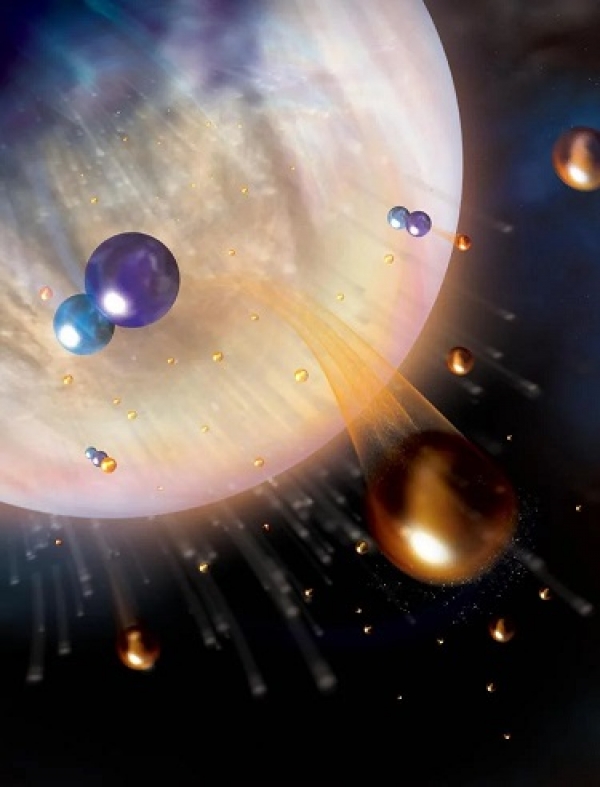Planetary scientists at CU Boulder have discovered how Venus, Earth’s scalding and uninhabitable neighbor, became so dry.
Planetary scientists at CU Boulder have discovered how Venus, Earth’s scalding and uninhabitable neighbor, became so dry.
The new study fills in a big gap in what the researchers call “the water story on Venus.” Using computer simulations, the team found that hydrogen atoms in the planet’s atmosphere go whizzing into space through a process known as “dissociative recombination”—causing Venus to lose roughly twice as much water every day compared to previous estimates.
“The team published their findings May 6 in the journal Nature. The results could help to explain what happens to water in a host of planets across the galaxy.
Read More: University of Colorado - Boulder
In Venus' upper atmosphere, hydrogen atoms, orange, whiz into space, leaving behind carbon monoxide molecules, blue and purple. (Photo Credit: Aurore Simonnet/LASP/CU Boulder)




